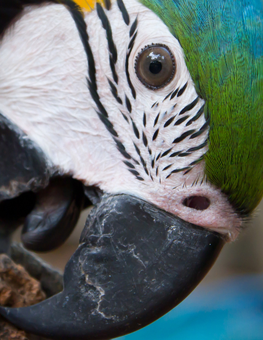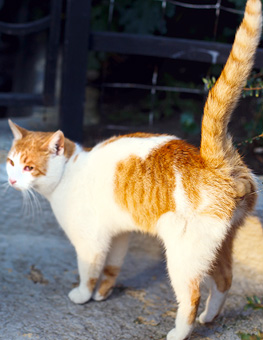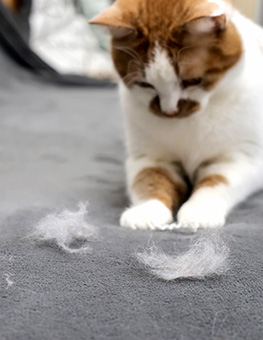How to Teach your Bird to Talk
Some bird species will speak more clearly than others, and personality will also play a role in what your bird picks up from his environment.
For those species that can be trained, a significant vocabulary can be developed - as long as you are willing to be patient. Repetition, consistency and praise are the keys to success!
Note: Not all pet birds are capable of mimicking speech. Among the species that are known to be good mimickers are:
- African Grey Parrots
- Amazons: Blue Fronts, Double Yellowheads, Red Loreds, Yellow Napes
- Budgies/Parakeets
- Cockatiels
- Lorikeets
- Lovebirds
- Mynah birds
- Quaker Parrots
Repetition: The secret to teaching your bird to talk is repetition. You can do this by clearly enunciating the same words or phrases over and over again. There are tapes/CDs and computer programs designed to teach birds to talk, but there is evidence that not all birds will respond to these inanimate voices.
Reinforce the words you want him to learn by using them in conjunction with associations he can understand. For example, as you place his food bowl in his cage each day say, “Wanna eat?” Or, when you give him other foods or toys, say the name out loud each time these objects are presented to him. Say the name BEFORE and AFTER he takes the object from your hand. Repeat this exercise a few times each day. Most birds will grasp the association between the word and the toy, which will accomplish two objectives – teaching him to talk and teaching him to fetch items by name.
Consistency: Use caution when speaking around your bird. He will mimic words that he hears repeatedly - even those words that you would prefer he didn’t. This is where you need to be consistent. It isn’t fair to be amused when your bird swears in private and then expect him not to choose the wrong time to utter those less-than-polite words when people come to visit. Whenever your bird uses inappropriate language, the best thing you can do is ignore him – provide neither negative nor positive feedback.
Praise: Each time your bird repeats your training phrase, be sure to praise him with “good bird” (or any other key phrase you want your bird to learn). Verbal praise, with or without treats, usually will be enough to train your bird to give you a consistent performance.
Note: Bird experts have suggested that teaching your bird to whistle may actually hinder his verbal education; whistling birds, even in a single bird environment, often show a reluctance to use human speech.









